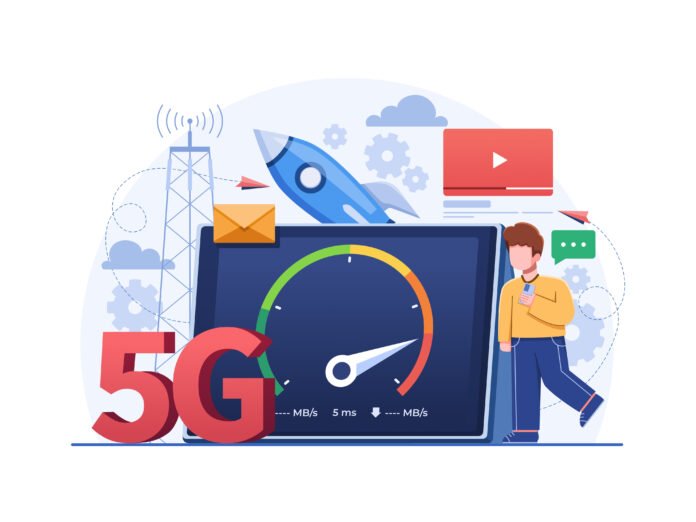In today’s digital world, a reliable and fast internet connection is more of a necessity than a luxury. Whether you’re working from home, streaming your favorite shows, or simply browsing the web, choosing the right internet service can significantly impact your online experience. With numerous options available, it can be overwhelming to decide which service is best suited for your needs. At Talk walk Connection, we understand how crucial this decision is, and we’re here to help guide you through the process. Below, we’ve compiled some top tips to ensure you select the best home internet service for your household.
1. Understand Your Internet Needs
The first step in choosing the right internet service is understanding your usage requirements. Different households have varying needs based on the number of users, devices, and the activities they engage in. Ask yourself:
- How many people will be using the internet? If it’s a large family, you’ll need more bandwidth.
- What do you primarily use the internet for? Casual browsing, video streaming, online gaming, or remote work all require different speeds and data capacities.
- How many devices will be connected at the same time? From phones to smart TVs, tablets to gaming consoles, the more devices connected, the more speed and bandwidth you’ll require.
For light users who primarily browse the web and check emails, a lower-speed plan may suffice. However, if you’re into gaming, 4K streaming, or have a large number of connected devices, you’ll want a plan that offers higher speeds and more data.
2. Check Available Providers in Your Area
Before diving into internet plans, you need to research which internet service providers (ISPs) are available in your region. Not every provider offers service in every area, and some may have better infrastructure in certain locations than others.
A good place to start is by visiting websites that allow you to input your zip code to see which ISPs serve your neighborhood. You can also check with local providers, such as Talk walk Connection, to find out what types of internet services (fiber, cable, DSL, satellite, etc.) are available and their respective pricing.
3. Compare Internet Types (DSL, Cable, Fiber, Satellite)
Different types of internet connections offer varying levels of speed and reliability. Here’s a quick breakdown of the main types:
- DSL (Digital Subscriber Line): This service is delivered via telephone lines and offers decent speeds, typically enough for light users. However, it’s not as fast as fiber or cable.
- Cable: Internet delivered through coaxial cables can offer higher speeds and is widely available. It’s a solid choice for households that engage in moderate to heavy internet use.
- Fiber: The fastest and most reliable internet service, fiber-optic internet, delivers speeds that can surpass 1 Gbps (gigabit per second). It’s ideal for high-demand activities like 4K streaming, gaming, and large file downloads. However, fiber is not as widely available as cable or DSL.
- Satellite: This is usually the last resort for rural areas where other services aren’t available. Satellite internet can be slower and more prone to latency issues, but it’s a suitable option if no other high-speed options are available.
4. Determine the Speed You Need
Once you know what types of internet are available, the next step is to figure out how much speed your household needs. Internet speed is measured in megabits per second (Mbps). Here’s a general guideline:
- 1-5 Mbps: Basic browsing, checking emails, and social media.
- 10-25 Mbps: Streaming HD content, online gaming, and video conferencing for 1-2 people.
- 50-100 Mbps: Moderate to heavy streaming, gaming, and remote work for multiple users.
- 200+ Mbps: Ideal for large households with many devices, heavy gaming, and 4K streaming.
Be sure to choose a plan that offers sufficient speed for your home’s needs. Choosing a speed that’s too low can lead to buffering, slow downloads, and frustration, while opting for a speed that’s too high might result in overpaying for what you don’t need.
5. Consider Data Caps and Usage
Some ISPs impose data caps, which limit the amount of data you can use each month. If you exceed the cap, you might face slower speeds or extra charges. For households that stream a lot of videos, game online, or have multiple users, it’s important to opt for an internet plan with a high or unlimited data allowance.
Be sure to check with your ISP about any potential caps. Talk walk Connection offers plans with flexible data options, ensuring you have enough data for all your online activities without the fear of overage fees.
6. Evaluate Customer Service and Support
When it comes to internet service, technical issues are inevitable at some point. Choosing an ISP that provides excellent customer service and support is critical. You’ll want to ensure that the provider offers easy access to customer service representatives, whether by phone, chat, or email, and that they respond quickly when there’s an issue.
At Talk walk Connection, we pride ourselves on offering top-tier customer support, ensuring that your internet experience is as seamless and stress-free as possible.
7. Check for Bundling Options
Some providers offer bundling options that combine internet service with TV, phone, or even mobile services at a reduced rate. If you’re interested in bundling services, it’s worth exploring these packages. However, always make sure that the bundle suits your needs and that you’re not paying for services you don’t require.
Final Thoughts
Choosing the right internet service provider is an important decision that affects your daily life. By understanding your household’s internet needs, comparing providers and plans, and paying attention to customer service and reliability, you can make an informed decision. At Talk walk Connection, we’re here to assist you in finding the best internet plan for your home, ensuring you stay connected, entertained, and productive.
For more information or to explore our offerings, feel free to contact Talk walk Connection today!

